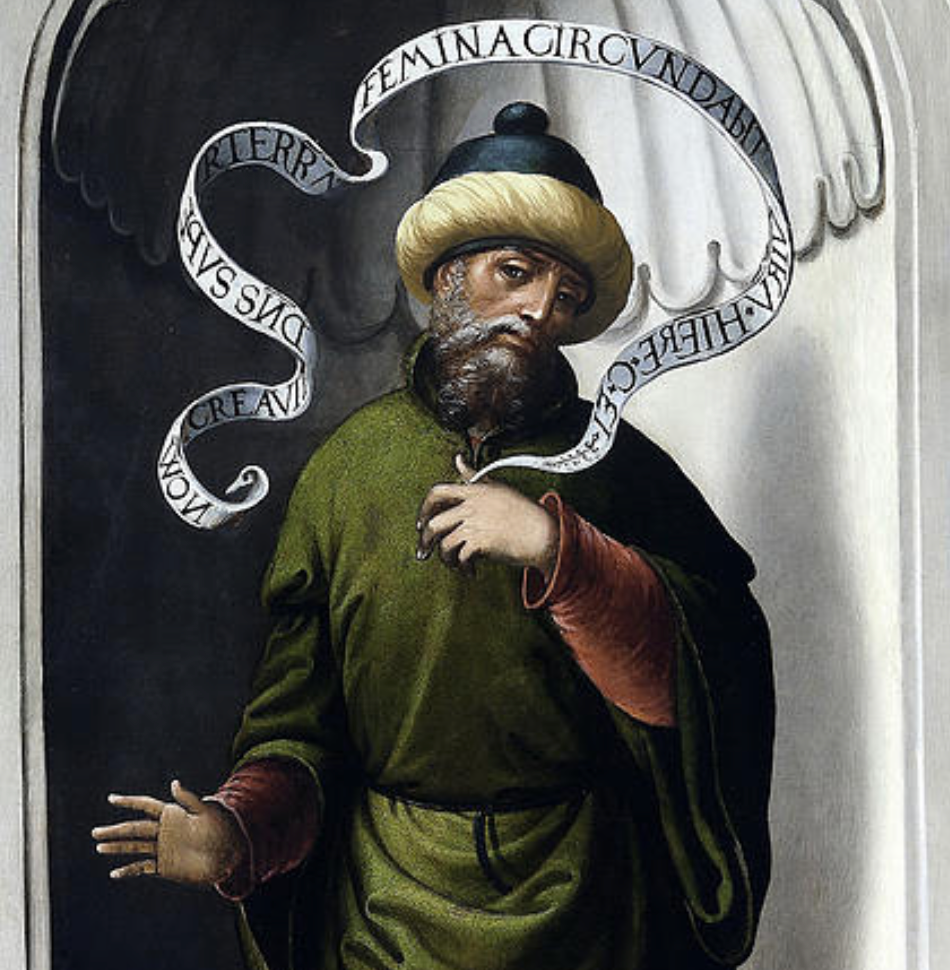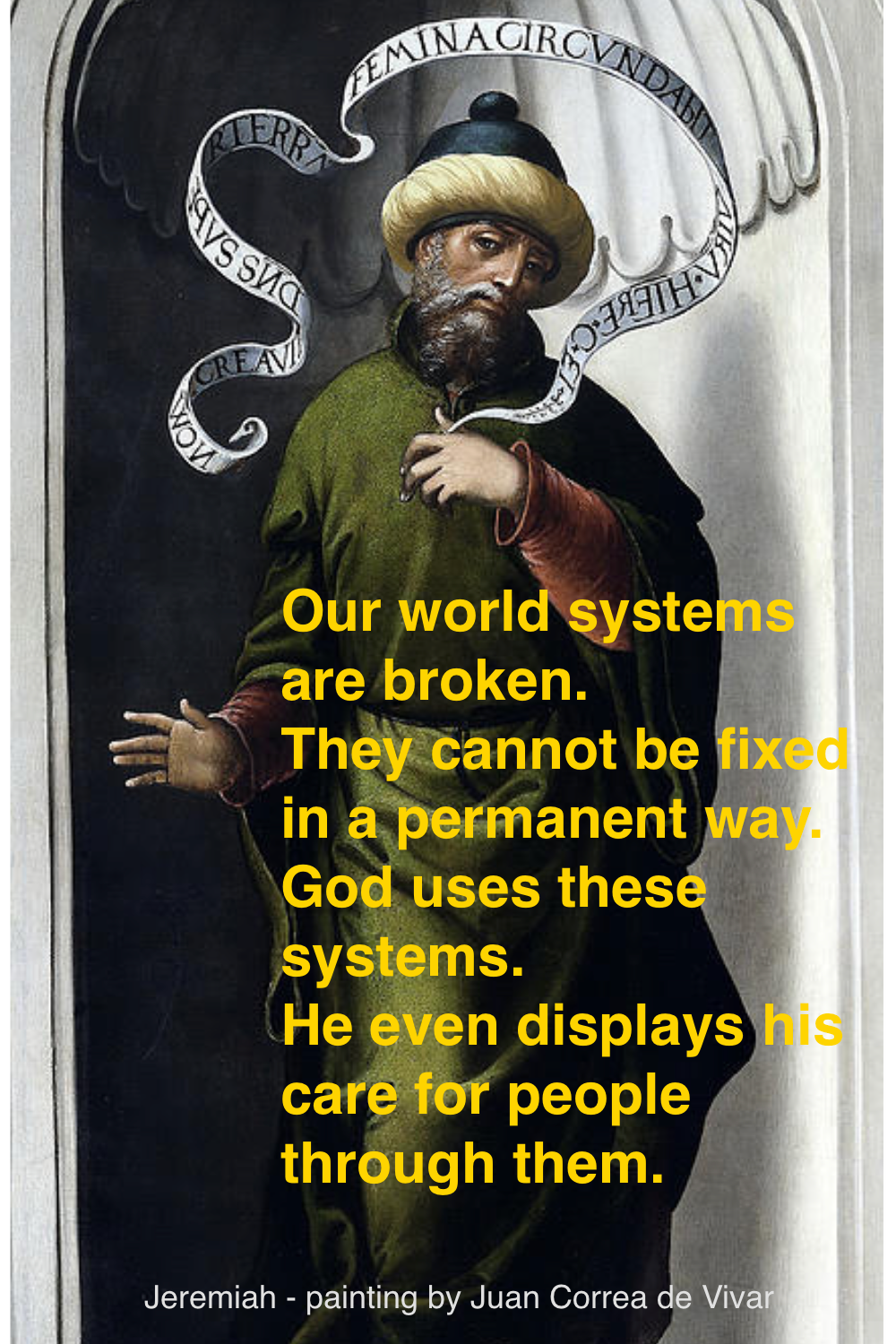The year 595 BCE was a furiously rough time for Israel. Babylon had emerged as a world power and conquered Jerusalem and much of the surrounding region. The royal and priestly classes and the skilled craftsmen and artisans had been displaced by the war and carried off to Babylon. Birthed by this time of exile away from their homeland, the concept of Babylon representing the world system began to flesh out and emerge.
God understood there was an appointed time for Babylon. I don’t claim to have a strong grasp on the geopolitics of God, but it is clear from the biblical narrative that there is always an active cosmic plan from heaven at work. In the NT era, many scholar’s believe Babylon represented Rome in the thoughts of the early church. Today, for the People of God, Babylon represents the world system judged by the Word of the Lamb.
Two points about this world system: It is broken and cannot be fixed. God uses it and even displays his care for people through it. As governments scramble, COVID 19 is a brief reminder of this in present history.
Let’s examine this. For any system, whether it is ISIS (which embraces an almost overtly evil yet religious philosophy), communism, democracy or any economic theory, the undercurrent hope is “the greater good.” Any system we build, war we fight, or drug we create is at some level the pursuit of a “greater good” achievement or step forward. No matter how amazing the new solution is, the system to produce and reproduce “greater good” eventually corrupts. It can never bring an eternal answer like the return of Jesus does.
All systems are built around laws or principals that gravitate towards enslaving us. Certain overarching, eternal truths are permanent, like the value of human life, or God loving the entire world. But we expand from the core principals to sub principals for daily life. Even if sub principals are good, but they should not replace the life of God. Substituting these principals for our daily bread, the manifestation of God’s life for today which is specific to this time and season will eventually enslave us within a Babylonian system.
During this time of exile, Jeremiah the prophet was facing several other prophets with hopeful and positive voices. Hananiah said that the yoke of Babylon would be broken in two years. Ahab and Zedekiah gave similar words, as did Shemaiah, who claimed the priesthood and tried to silence any negative prophetic words, like Jeremiah’s.
Jeremiah’s words did have a lot of scary and even negative tones. But Chapter 29 of Jeremiah is full of wise hope, in the midst of a broken system. Here are some statements from Jeremiah about living in Babylon that are so valid for today:
“Build houses and live in them; plant gardens and eat their produce. Take wives and have sons and daughters; take wives for your sons, and give your daughters in marriage, that they may bear sons and daughters; multiply there, and do not decrease” (Jer 29:5–6).
“For I know the plans I have for you, declares the Lord, plans for welfare and not for evil, to give you a future and a hope. Then you will call upon me and come and pray to me, and I will hear you. You will seek me and find me, when you seek me with all your heart. I will be found by you, declares the Lord” (Jer 29:11–14).
God is allowing us to see in this season how broken our global, national and economic systems are. I deeply believe there are answers that God has prepared for this hour. Maybe some of those answer will come from his people, which is where spiritual hope should come from. For the church to be a valid witness of God’s sacrificial covenant of love, she must live the gospel incarnated within a broken system. Not believing or trusting in that system, but bringing heaven’s answers for the current time.
“But seek the welfare of the city where I have sent you into exile, and pray to the Lord on its behalf, for in its welfare you will find your welfare” (Jer 29:7).


